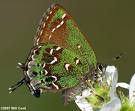Swamp cedar Tree Information
Images of Swamp cedar:






Swamp cedar grows in the following 17 states and provinces:
Alabama, Connecticut, Delaware, Florida, Georgia, Louisiana, Maine, Maryland, Massachusetts, Mississippi, New Hampshire, New Jersey, New York, North Carolina, Rhode Island, South Carolina, VirginiaInformation about Swamp cedar:
The Chamaecyparis Thyoides is commonly known as the Atlantic White-cedar, False-cedar, Juniper, Southern White-cedar, Swamp-cedar as well as White-cedar.
The currently accepted scientific name of Atlantic white-cedar is Chamaecyparis thyoides (L.) B.S.P. . It is a member of the cypress family (Cupressaceae) . In some taxonomic treatments, two primarily geographic varieties of Atlantic white-cedar have been delineated (var. henryae and var. thyoides) . However, most current taxonomic treatments no longer recognize these varieties . The existence of climatic races is possible, although they have not yet been defined .Atlantic white-cedar grows in a narrow belt along the Atlantic and Gulf coasts from southern Maine to northern Florida westward to southern Mississippi . It occurs no farther than 50 to 130 miles (80-210 km) inland . Vast stands occur in the Great Dismal Swamp of Virginia and eastern North Carolina. Small isolated stands are more typical in much of New Jersey, Georgia, and eastern Florida, but stands are infrequent in Delaware and Maryland. The species is uncommon in South Carolina but becomes more frequent in the Florida Panhandle and in southern Alabama . At the western edge of its range in southern Mississippi, Atlantic white-cedar grow in scattered relict stands .Atlantic white-cedar grows as an overstory dominant in peaty swamps. It is listed as a dominant or indicator in the following community type (cts) classifications: Area Classification Authority VA general veg. cts Montague & Day 1980 southern U.S. swamp veg. cts Penfound 1952Some of the information provided here is attributed to:Tirmenstein, D. A. 1991. Chamaecyparis thyoides. In: Fire Effects Information System, [Online]. U.S. Department of Agriculture, Forest Service, Rocky Mountain Research Station, Fire Sciences Laboratory (Producer). , available at the USDA Fire Effects Information System (FEIS) website